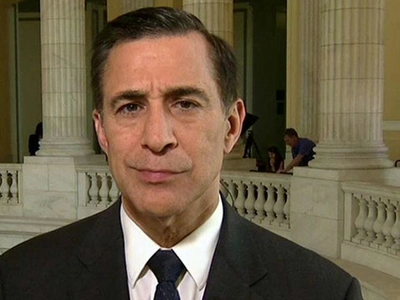Trump’s Bold Move: Firing the IRS Commissioner Over Controversial Immigration Data-Sharing
The halls of federal agencies are buzzing with unprecedented tension as a stunning clash between America's tax collection system and immigration enforcement has erupted into the public eye. At the center of this controversy? A high-stakes battle over taxpayer data that's revealing the deep fractures in how our government operates when politics and policy collide.
The Shocking Reality Behind Closed Doors
What many Americans don't realize is that millions of undocumented immigrants pay taxes every year—to the tune of tens of billions of dollars annually. They file returns, pay income taxes, and contribute to Social Security and Medicare through Individual Taxpayer Identification Numbers (ITINs). This system has operated quietly for decades, creating an unusual arrangement where people living in the country illegally still fulfill their tax obligations.
But that delicate balance has been shattered.
The Internal Revenue Service recently entered into a controversial Memorandum of Understanding with Immigration and Customs Enforcement (ICE) that fundamentally changes the game. Under this agreement, the IRS can now share sensitive taxpayer information—names, addresses, and tax data—with ICE for immigration enforcement purposes.
The Data-Sharing Bombshell That Has Everyone Talking
Here's where it gets explosive: ICE submitted requests for personal information on 1.23 million people they suspect are in the country illegally. The sheer scale of this request reveals the massive scope of the Trump administration's immigration enforcement strategy.
However, the IRS could only match and share data for less than 5% of those requests because ICE's information didn't align precisely with IRS records. This technical limitation has created frustration within enforcement agencies and raised questions about the effectiveness of the entire data-sharing operation.
The Commissioner Who Said "No" and Paid the Price
Billy Long's tenure as IRS Commissioner lasted just two months before he was pushed out of his position. Sources close to the situation reveal that Long's removal came after the agency expressed reluctance to fully comply with certain data-sharing requests from the White House.
The dismissal sends a chilling message throughout the federal bureaucracy: challenge the administration's immigration policies at your own risk. Long's ouster represents more than just a personnel change—it's a clear signal that loyalty to enforcement priorities trumps traditional agency independence.
The Taxpayer Trust Crisis Nobody's Talking About
This controversy exposes a fundamental problem that could devastate America's tax collection system. For decades, the IRS has operated under strict confidentiality rules designed to encourage voluntary tax compliance. When people believe their tax information could be used against them for non-tax purposes, they stop filing returns.
"The moment people lose trust that their tax information stays with tax authorities, you'll see a massive drop in voluntary compliance," warns one former IRS official who requested anonymity.
The implications are staggering. If undocumented immigrants stop filing taxes out of fear, the federal government could lose billions in revenue. States that rely on income tax collections would face budget shortfalls. The entire system depends on people believing their tax information remains confidential.
The Political Firestorm Igniting Across America
This isn't just about immigration policy—it's about the fundamental role of government agencies and whether they should operate independently or serve as enforcement arms of political agendas.
Critics argue that weaponizing tax data for immigration enforcement destroys the delicate balance that has allowed the tax system to function effectively. They point out that even Al Capone was brought down through tax evasion charges, not because the IRS shared his information with other agencies, but because he failed to pay taxes on his illegal income.
Proponents counter that people living in the country illegally shouldn't expect privacy protections when they're already violating federal law. They argue that every available tool should be used to enforce immigration laws and protect American jobs and benefits.
The Unintended Consequences That Could Backfire
The data-sharing policy may achieve the opposite of its intended effect. Immigration attorneys are already advising clients to be more cautious about tax compliance, treating it as a potential enforcement risk. This could lead to:
- Decreased tax revenue as people avoid filing returns
- Increased underground economic activity
- Reduced cooperation with other government programs
- Administrative chaos as agencies struggle with mismatched data
The Bigger Picture: What This Means for Government Accountability
The IRS-ICE controversy represents a broader question about government accountability in America. Should federal agencies maintain independence in their operations, or should they be required to support administration priorities regardless of their traditional mission?
The rapid removal of Commissioner Long suggests that agency independence is being systematically dismantled in favor of political alignment. This trend extends beyond immigration policy and could reshape how federal agencies operate for decades to come.
The Constitutional Questions That Keep Lawyers Up at Night
Legal experts are raising serious constitutional concerns about the data-sharing arrangement. The Fourth Amendment protects against unreasonable searches and seizures, and some argue that using tax data for immigration enforcement violates these protections.
Additionally, due process concerns arise when tax information filed in good faith is used to build deportation cases. The legal challenges are just beginning, and federal courts may ultimately decide whether this practice can continue.
Where Do We Go From Here?
This controversy has exposed the complex intersection of tax policy, immigration enforcement, and government accountability. The decisions made in the coming months will determine whether America's tax collection system maintains the trust and cooperation it needs to function effectively.
The removal of Billy Long may seem like just another Washington personnel move, but it represents something much larger: a fundamental shift in how government agencies operate and whether they can maintain independence from political pressure.
As this story continues to unfold, one thing is certain—the battle over taxpayer data and immigration enforcement is far from over, and its resolution will shape American governance for generations to come.




